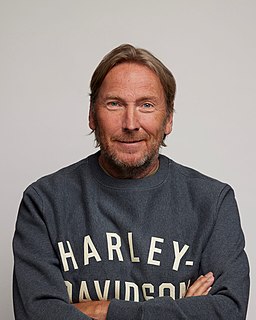A Quote by Jochen Zeitz
We all know that cattle and beef are among the biggest contributors to carbon emissions.
Quote Topics
Related Quotes
President Bush insisted today that he was not caving in to big-money contributors, big-time lobbyists, and overall industry pressure when he broke a campaign promise to regulate carbon dioxide emissions from power plants. But the air was thick today with accusations from people who believe that's exactly what happened.



































